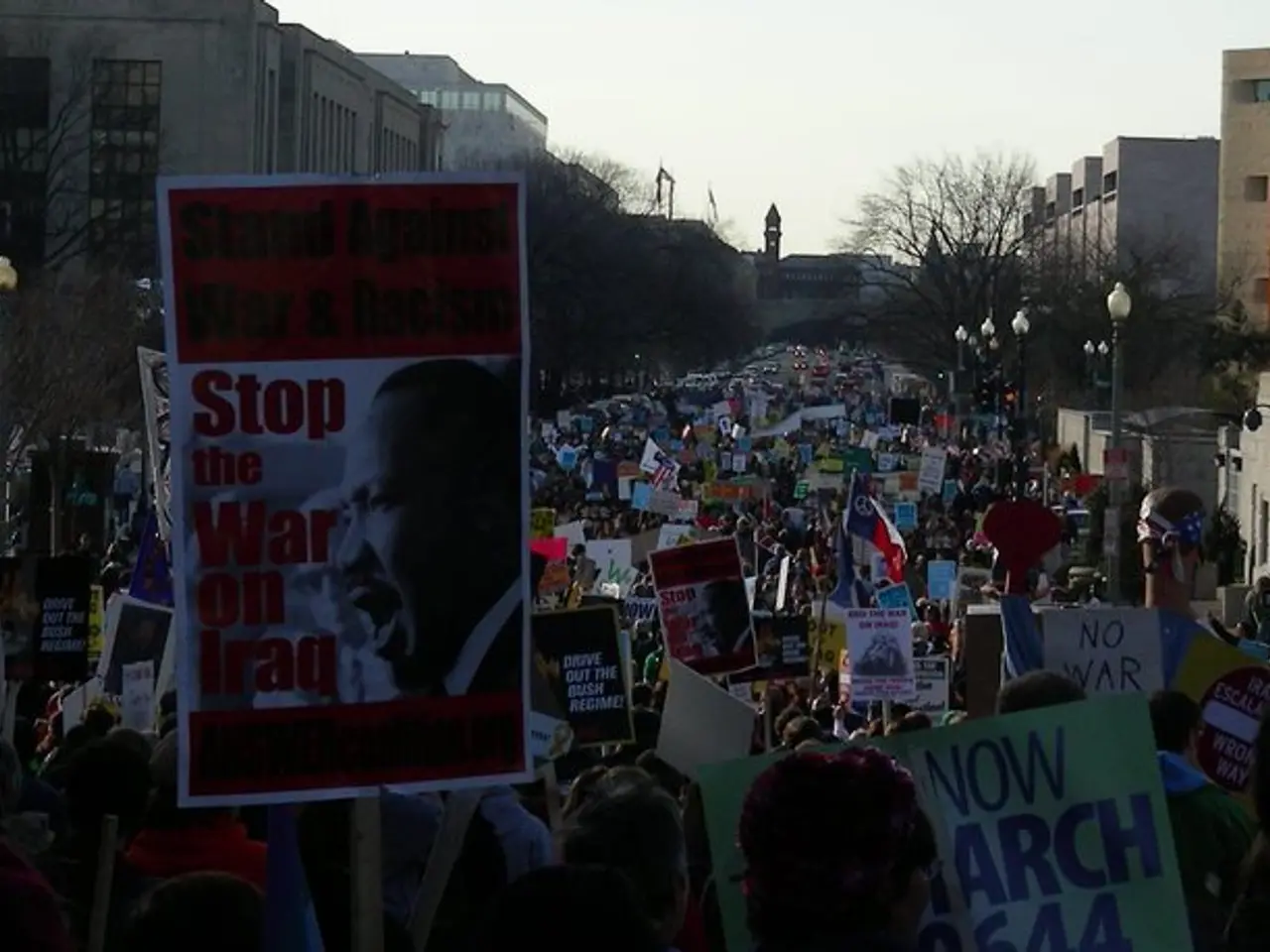Unfinished Business: Protestors Fined, but the Climate Crisis Remains Unaddressed
Ruling issued over disturbance incident at Düsseldorf State Parliament
In Düsseldorf's local court, justice was served—or so it seemed. Two climate activists, members of the Extinction Rebellion movement, paid their fines after being charged for intruding and aiding fellow protesters. With a 150 and 300 euro fine each, they've got until the end of 2025 to make things right.
The trial, which lasted less than an hour, revolved around an event from four years ago, back in May 2021. The activists, alongside numerous supporters, had descended upon the NRW state parliament to voice their concerns about lobbying. The unsuspecting security personnel were taken aback when one of the defendants allegedly scaled the parliament's glass canopy with a ladder, while his co-defendant took shelter on the roof of a parked caravan. "They staged a scene, but their presence alone wasn't enough for a conviction," explained Alexander Franke, the local court's spokesperson.
The court had already tackled this protest action once before. Around a year ago, another group of participants were taken to court for aiding and abetting trespassing and were supposed to pay 450 euros in fines. However, the court dismissed the case just as swiftly as it did recently—the activists' presence didn't meet the criteria for a conviction.
In the aftermath of the protest, the state parliament administration decided to boost security measures. Three hundred thousand euros were spent on installing retractable electric bollards near the parliament to prevent caravans and other large vehicles from approaching the parliament.
Extinction Rebellion is a global movement known for employing nonviolent civil disobedience to demand legislative actions aimed at averting the climate crisis. Events like the protest in Düsseldorf serve as a reminder of the intensity and growing urgency around the issue.
While the protesters have paid their dues, the climate crisis remains a pressing issue that needs immediate attention and action. These dismissed cases, while technically resolved, are symbols that reflect larger debates on public order and civil liberties and highlight the necessity for urgent policy changes on the climate crisis.
The Extinction Rebellion movement, despite being charged for their protest at the NRW state parliament four years ago, had their cases dismissed due to insufficient evidence for a conviction. This dismissal underscores a broader debate on public order and civil liberties, as the climate crisis, a pressing issue that mandates immediate action, continues to persist.
In the realm of general news and politics, the court's handling of climate activists' cases may offer insights into the broader justice system's approach towards crime-and-justice issues, particularly those related to environmental activism.







